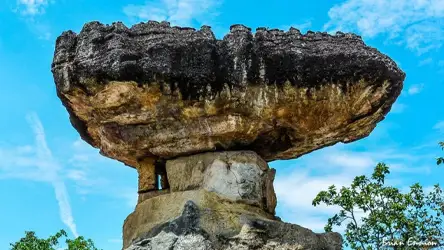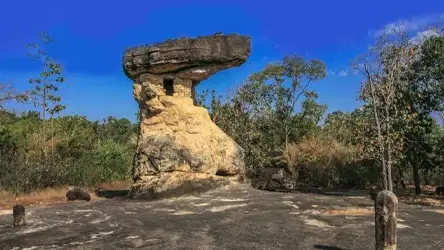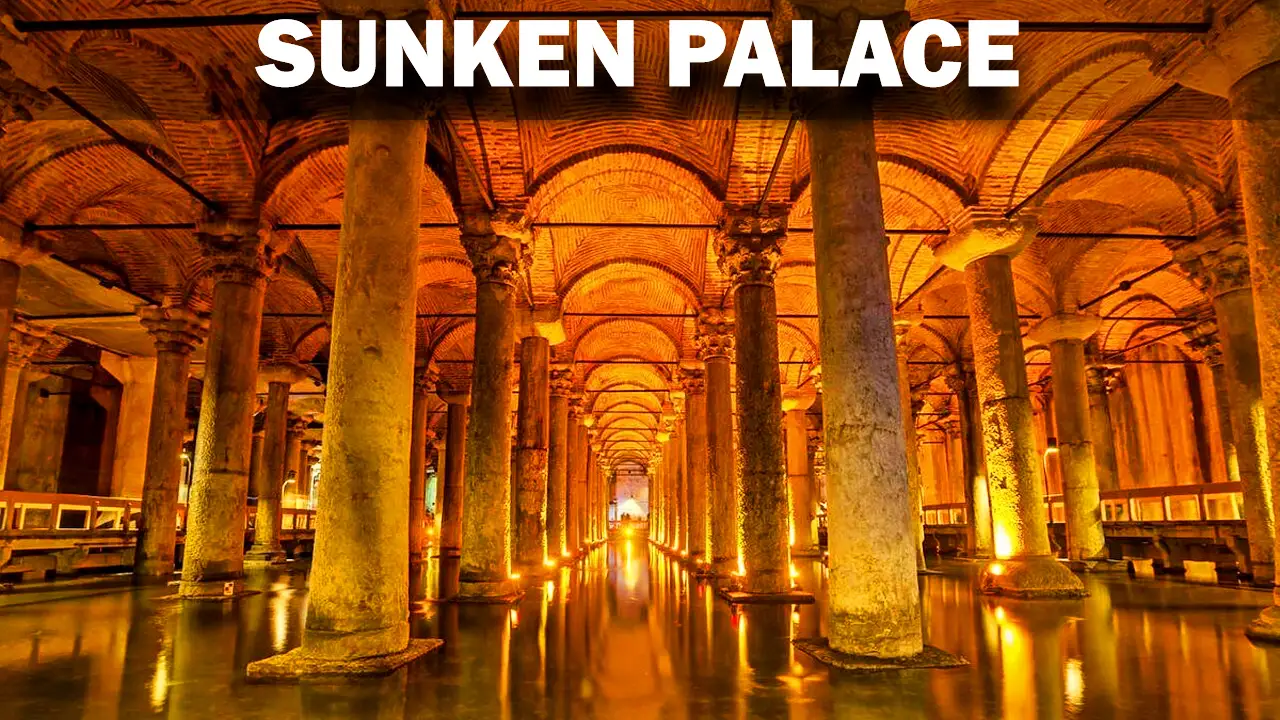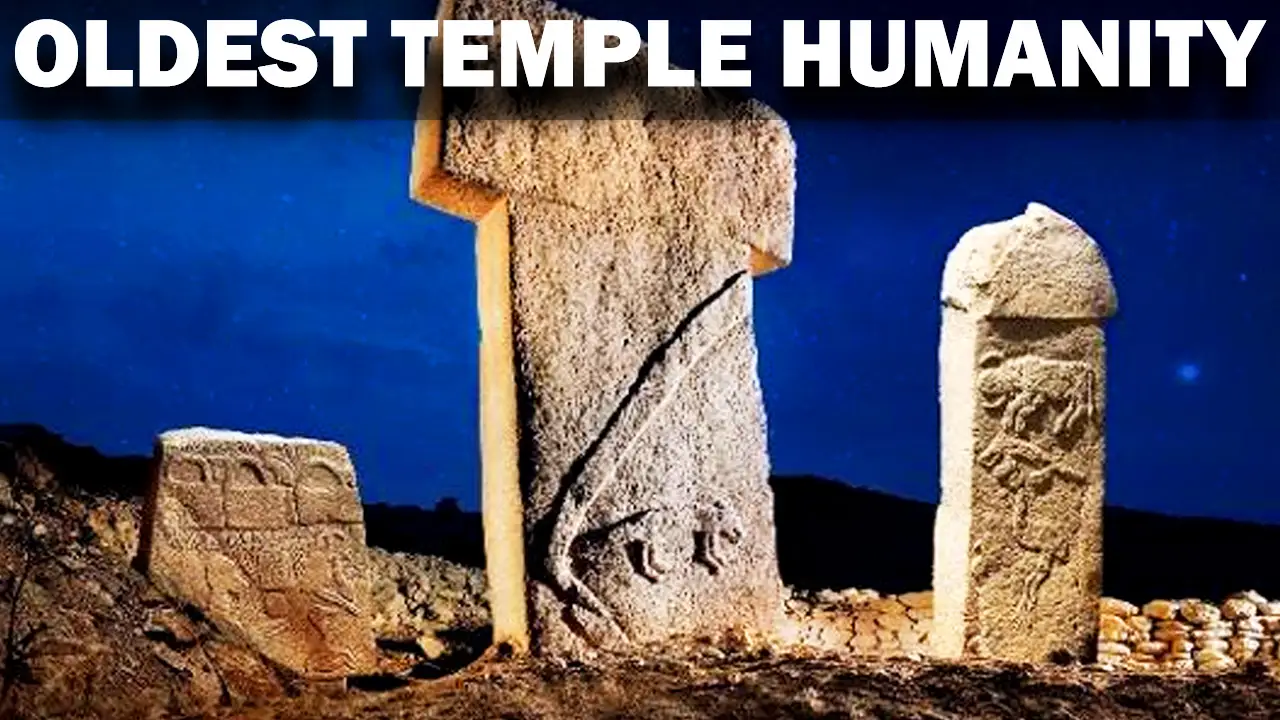Among the hills of northeastern Thailand, a labyrinth of rocks sculpted over millennia holds secrets that connect the divine with the earthly.
Phu Phra Bat: The Stone Archive of Southeast Asia
Here, where the wind whispers legends of wandering monks and forgotten civilizations, each crack in the sandstone is a page in a book written by nature and man.
Phu Phra Bat is not just a park: it is a portal to a past where art, spirituality and geology intertwine. What mysteries await among its rock formations?

Declared a historical park in 1981 and on UNESCO’s tentative list since 2004, Phu Phra Bat is an archaeological and natural treasure.
Its 3,430 acres are home to 81 cultural sites, including cave paintings dating back 3,000 years, temples from the Dvaravati period (6th-11th centuries) and Khmer carvings that reveal the passing of empires.
The sandstone hill, shaped by glaciers and monsoons, served as shelter, temple and canvas for civilizations that left their mark on sacred rocks.
The Layers of Time: Art, Faith and Geology
Cave Paintings: The First Art of Mankind
In the natural caves of Phu Phra Bat, red figures of animals and humans bring prehistoric stories to life. These works, created with iron oxide, depict hunting scenes and rituals, offering a window into the lives of the earliest inhabitants of northeastern Thailand.
Dvaravati: Where Buddhism Found a Home
Sema stones (sacred pillars) decorated with apsaras (celestial nymphs) mark the boundaries of ancient Buddhist temples. In formations like Hor Nang Usa, monks meditated under rock ceilings while carving Buddha images that still radiate serenity today.
The Khmer Legacy: When the Angkor Empire Reached the North
During the reign of Jayavarman VII (12th century), the Khmer transformed crevices into shrines. Their stone carvings, fusing Hinduism and Buddhism, reflect a time when Phu Phra Bat was a spiritual node on pilgrimage routes.
Exploring the Park: Trails Revealing the Invisible
Millenary Secrets Trail
A 5 km loop connects key landmarks:
- Tham Wua and Tham Khon: Caves with prehistoric paintings and Buddhist altars.
- Hor Nang Usa: A tower formation used for meditation.
- Wat Pho Si: Temple with Lan Xang-style carved Buddha footprints. Key tip: Hire local guides at the visitor center to decipher hidden symbols.
Breathtaking Viewpoints
The Phu Phra Bat viewpoint offers 360° views of the Phu Phan Mountains, ideal for sunsets tinged with gold.
Practical Guide: How to Experience Phu Phra Bat
How to get there
From Udon Thani (60 km): Private cabs (1 h, ~800 THB round trip).
From Nong Khai (50 km): Ideal to combine with the trip to the Emerald Triangle.
Schedules and Tips
- Schedule: 8:00 AM – 6:00 PM.
- Essential luggage: Hiking shoes, water, hat and camera.
- Ideal time: November-February (cool weather, less humidity).
Why Phu Phra Bat Deserves a Place on the UNESCO List?

According to the evaluation committee, the park is “an exceptional testimony to the Sīma tradition of the Dvaravati period.” But its value goes beyond that: it is a cultural palimpsest where layers of history coexist in harmony with a unique ecosystem.
Dipterocarp forests, home to endemic birds, surround the rock formations, creating a sanctuary for biodiversity.
A Journey Beyond Tourism
Phu Phra Bat is not visited: it is experienced. It is a place where every rock tells a story, every trail invites reflection and every sunset is a reminder that sometimes time does not move forward… it accumulates.
In a world of express travel, this corner of Thailand challenges travelers to stop, observe and connect with the roots of humanity.
- You may also like:
- YouTube Channel: Travel Destinations Now






